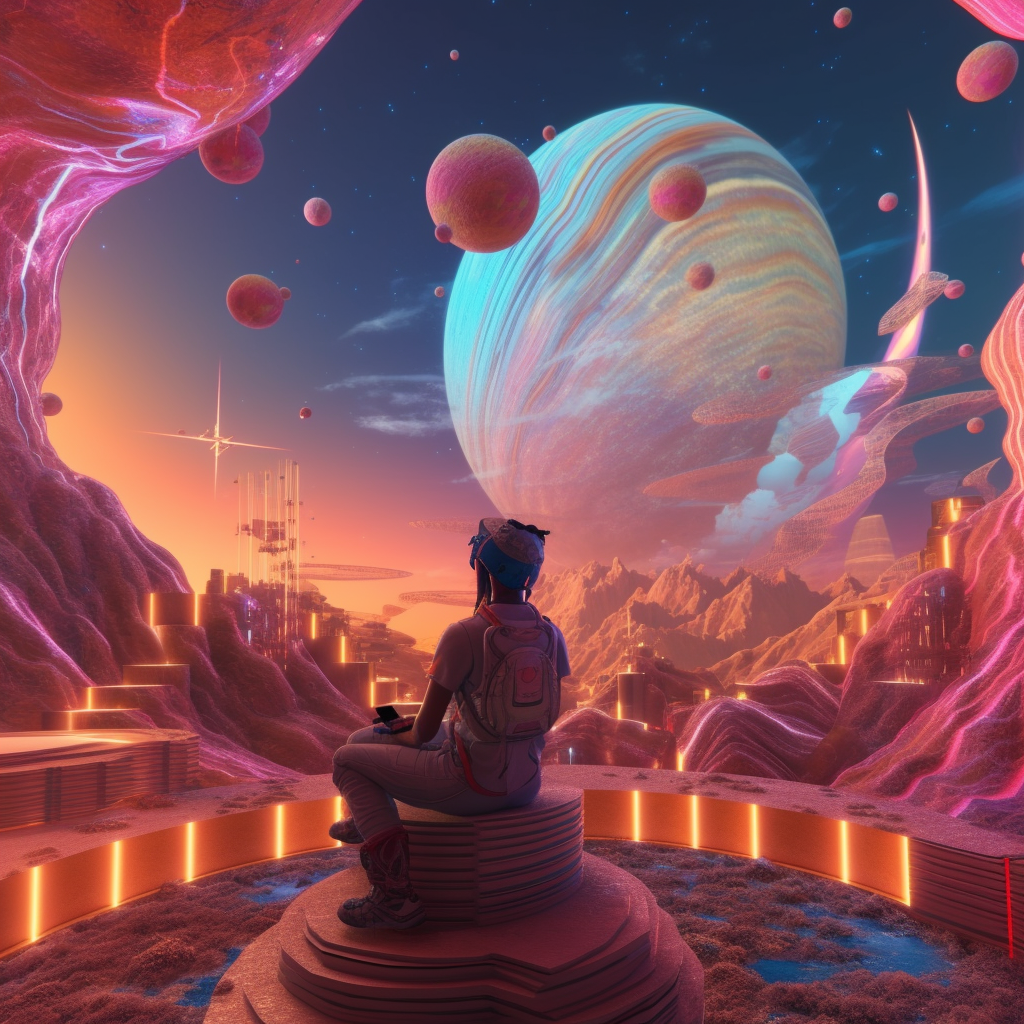
Is Metaverse Dead or Just Not Born Yet?
The idea of the metaverse had its ups and downs in the last few years. For me, as a person who builds a virtual reality platform for the enterprise, it is disappointing to see that the power and magic of virtual reality were defiled, shaded by unsound metaverse hype. Virtual reality is real, it is here and it works. Experiencing VR is an intense, often transformational experience that opens new doors of perception and interaction. This power can be applied thoughtfully and strategically to solve real problems of people and companies. Metaverse is merely a vision for a possible future where different immersive apps and spaces will become interconnected and will share economy. No need to say that we need to walk before we run and that before having metaverse we first need to have such spaces and wider adoption.
Two unfortunate things happened in the last two years that muddied the waters of this opportunity. I want to openly name them to clear the way for a conversation about things that actually matter.
First – one of the largest corporations in the world – Facebook, announced “the age of the metaverse” without actual products and adoption to back this claim. Some say it was done to redirect attention from many trust issues the company was fighting at the moment. Yes, Meta Quest 2 headset is a game-changer in the accessibility of immersive experiences, but there is a huge difference between a VR headset and an actual VR experience. Soon after rebranding Facebook / Meta has launched Horizons – an app that failed to find its audience. This led to a massive drop in valuation and going down, the company is taking a “metaverse” dream with it.
Second – crypto-hype followed by crypto-crash, which took the early promise of the immersive tech and used it to extend its own runway. In reality, immersive tech has nothing to do with blockchain – VR is immersive storytelling, playing with our perception when web3 decentralizes records of ownership. Nevertheless, the Web3 ecosystem, in search of use cases to validate its valuations, tried to claim ownership of the virtual reality future. The market got flooded with “metaverse” projects selling NFTs and cryptocurrencies, but offering nothing in terms of real-life value, experience and not even supporting VR!
These two ill-founded trends put the whole “metaverse” dream in question. At its inception, metaverse was a vague concept that may or may not actually happen (and Facebook Corp with the crypto community didn’t actually help). The metaverse vision is so huge, that even if it will come to life, it will do so as a joint effort of many real companies, providing real, valuable immersive solutions and experiences to millions of people. It definitely is not happening in 2023 and is unlikely to happen in the next few years.
So with all the hype and disappointment with the metaverse, it seems everyone is missing a simple fact that the metaverse hasn’t failed, it just hasn’t happened yet. And for it to happen we need to build enough meaningful and valuable experiences in virtuality, enough worlds and universes, and bring enough users and creators to kick-start this new economy, market, and ecosystem.
I think it is time to time to focus on what actually exists, on the reality of Virtual Reality - on the Virtuality.
Virtuality matters because of the reality of the experience that happens in it – of its value, be it spiritual transformation, entertainment, or productivity. Virtuality provides a third dimension to a digital world where we already spend hours of our day. In virtuality, our perception is not reduced to looking at 2-dimensional feeds and documents, as we can BE there. In virtuality, we can be more human in a digital world.
Being in virtuality is an intense experience. With today’s tech, spending more than an hour a day is not advisable. But this hour matters. This hour can bring memories and experiences that were not possible not only on Zoom or on 2d internet, but even in real life. I know this has been said a lot, but it is true – as I have memories of flying freely in the sky with my friend, floating with glowing jellyfish while having a business meeting, becoming small as a mouse and playing hide-and-seek with co-workers, having a presentation on top of the tree in a magic forest, manifesting group intent through a growing energy orb and so on and so forth.
We should not allow empty hype to take away what matters and what can actually make our lives more fulfilling and interesting. And virtuality is that.
P.S. You may have noticed that I haven’t mentioned AI once. This is not because it is not relevant, quite the opposite – I believe that a combination of AI and VR is something that will take virtuality experiences, value creation, and adoption to the next level and this topic deserves a separate post.
P.P.S. My co-founder expressed doubts that Virtuality is a real word - so here is a link to https://www.merriam-webster.com/dictionary/virtuality
Morpheus Future of Human Connection Newsletter
Join the newsletter to receive the latest updates in your inbox.



